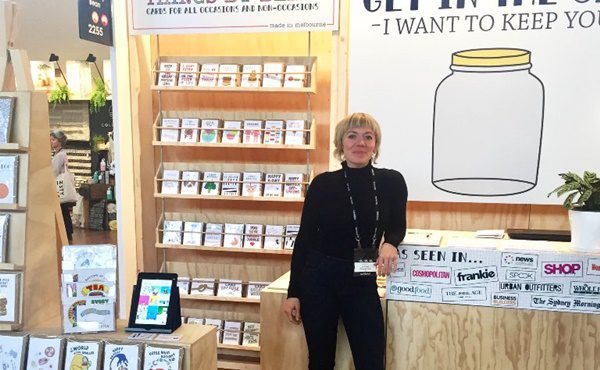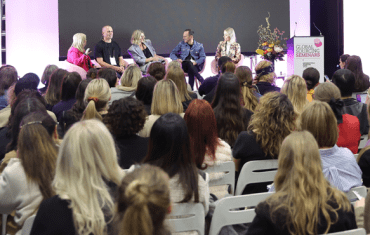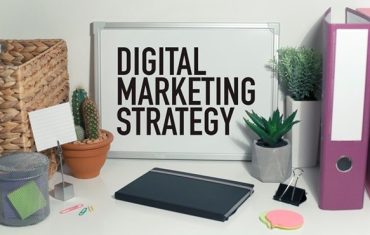My greeting card company, Things by Bean, began as 10 birthday cards stored in a biscuit tin. It was trade show marketing that took my company from biscuit tin to full time career. After my first trade show, Things by Bean’s stockist list grew from just three local retailers to nearly 20 retailers across Australia. Not only did that result give my brand the capital to keep growing, it also gave me the confidence to keep going.
Spend a little, learn a lot
It was a huge expense for a one-woman start up but I’ve always been on board with spending money to make money―at least in theory. This was the first time I’d had to put it into practice. When I look back at my early shows, I’m amazed they were successful. My display was entirely DIY, with a folding table and a tiny range of twenty cards. But the fact that it was successful proves one of the most comforting aspects of the trade show dynamic: people are there to buy.
Trade shows are a discovery platform for retailers. It’s a unique form of business-to-business marketing that’s inverse to the business-to-consumer marketing model. You’re not inserting your product or service into people’s daily life; your prospective customers are coming to you with intent to buy.
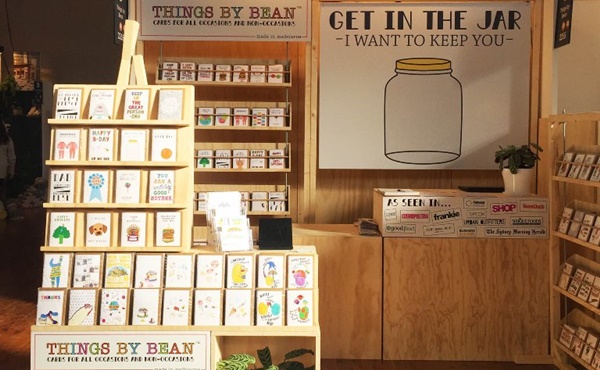
Do the maths, know your odds
I’ll use my favourite trade show, Life Instyle, as a case study. According to its reports, about 10,000 people attend each of their shows, which are held in Melbourne and Sydney every year. Inevitably, a handful of attendees are there to browse with no intention of placing orders. But according to Life Instyle’s show data for Melbourne 2016, 93 per cent of attendees had buying power within the business they own or represent and 91 per cent placed orders at the show. Based on my experience at Life Instyle, I would estimate that 10 to 20 per cent of attendees are looking for a product like mine. Based on that estimate, there are easily over 1,000 potential Things by Bean customers at the show.
I diligently track all costs and revenue associated with the trade shows that Things by Bean exhibits at. But I also know that some of the benefits born from trade show exhibiting can’t be quantified to the dollar. Trade shows also serve as an invaluable opportunity to connect with existing customers. While you can maintain rapport over email, there’s something so exciting and rewarding about touching base face-to-face with long-standing customers year after year. Things by Bean’s consistent presence at the shows has become a given, which reflects the reliability of the brand.
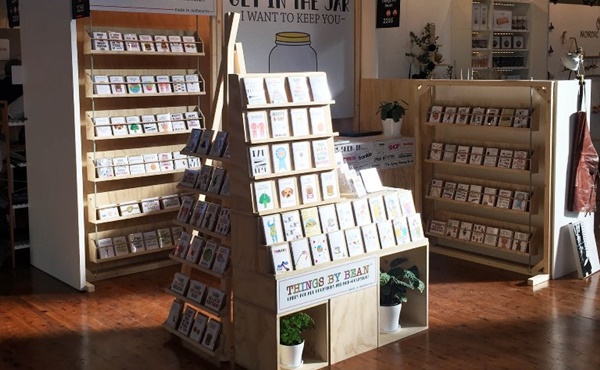
Credibility is important. When I went to the USA to showcase Things by Bean at the National Stationery Show (NSS), I remember a fellow exhibitor telling me they had exhibited for three years before finding trade show success. Other exhibitors said similar things about their experience with NSS, which is the biggest stationery show in the world. The international travel and lodgings ended up being too risky for Things by Bean to invest in every year, but the concept of building brand credibility through market presence was an NSS lesson that stuck with me.
Be authentic, know your brand
Another aspect of credibility is authenticity. Trade shows force you to cut to the core of your brand and highlight what makes your products or service unique and valuable. You only have a few square metres to not only display products, but summarise your brand’s identity as well. With every trade show, I learn more about my brand―it’s a flow-on effect that continues to amaze me.
And while you’re learning to distil and celebrate the core of your brand, you’ll also gain insight into the industry you operate in. You can gauge industry trends, best practice, marketing techniques, price point data and quality standards in one lap of the showroom floor. Having your finger on the pulse of your industry will help you stay a few steps ahead or at least in-step with the rest.
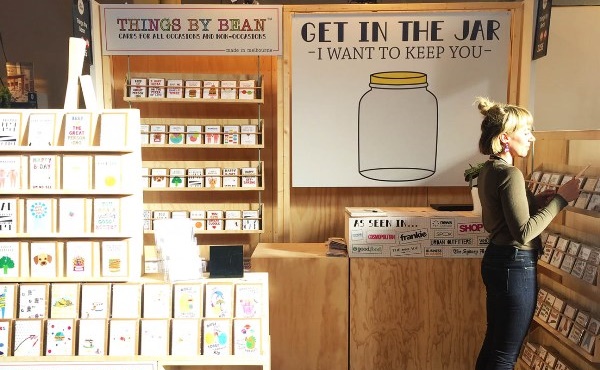
Early on, I returned to trade shows year after year for financial reasons alone. But over time, I’ve come to realise that monetary value is only part of the role trade shows play in Things by Bean’s success.
Jo Power is the founder and head designer of Melbourne-based card company, Things by Bean. Jo launched the brand in 2011 and has steadily grown the business with a focus on wholesale.



